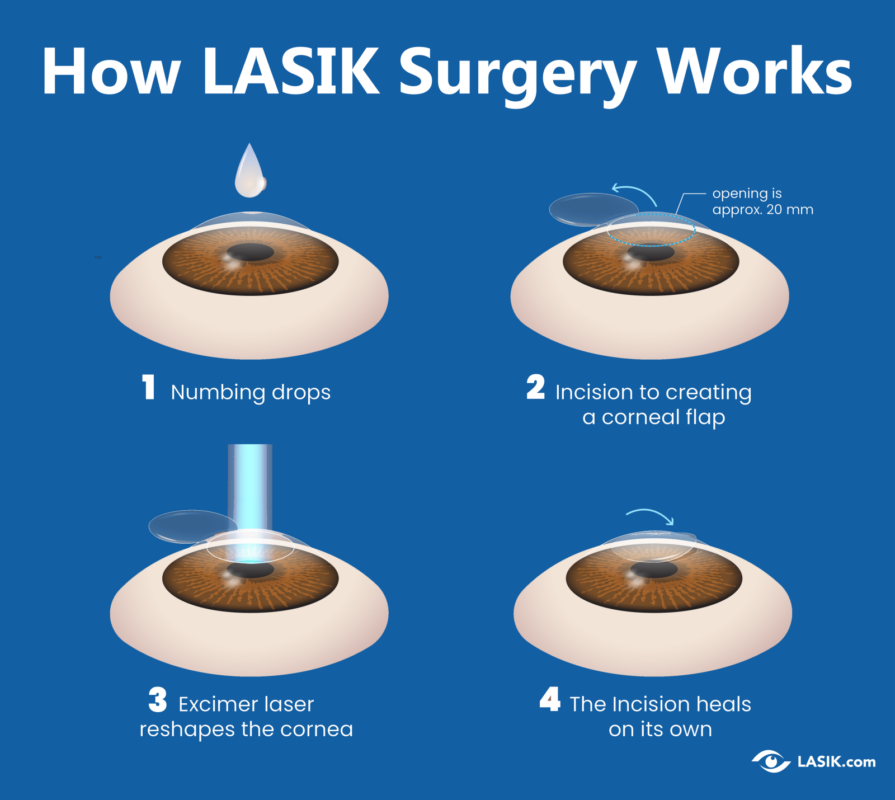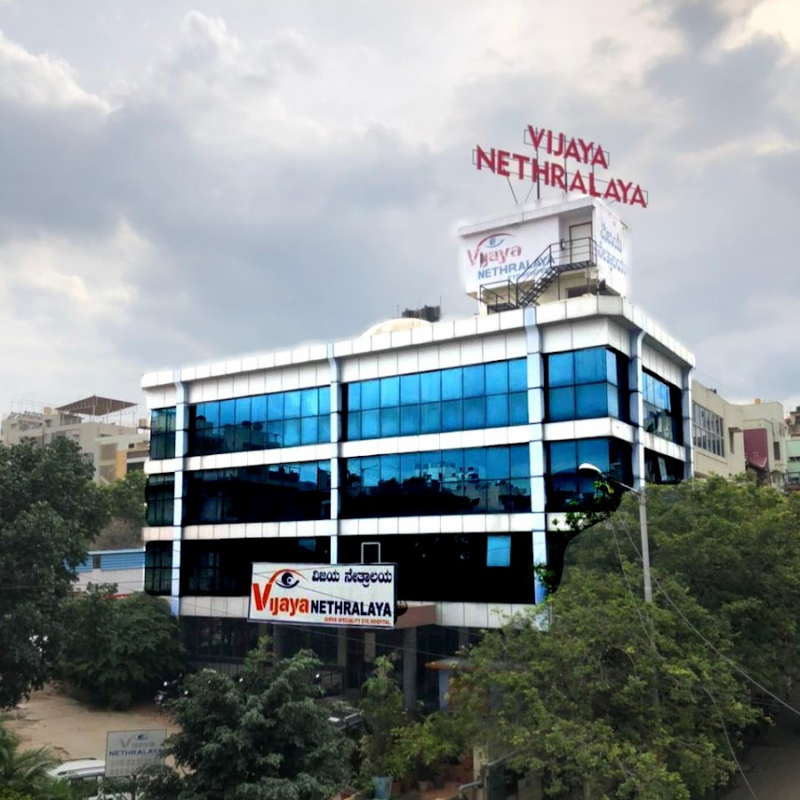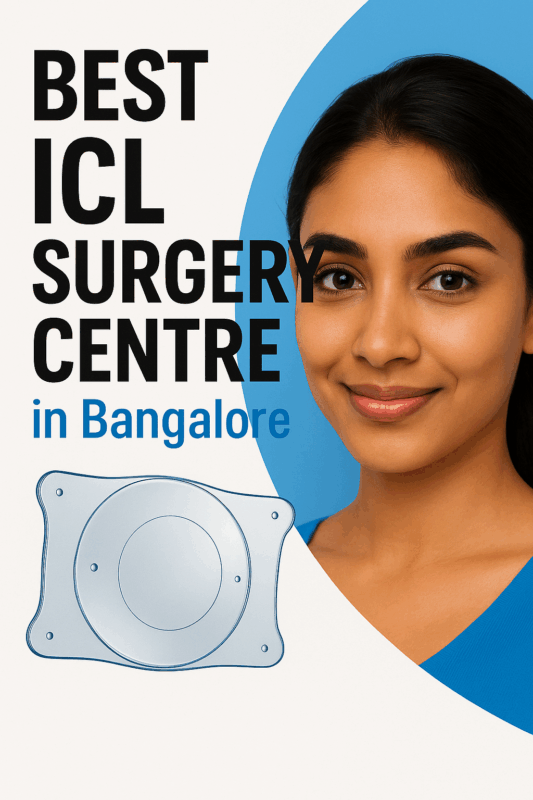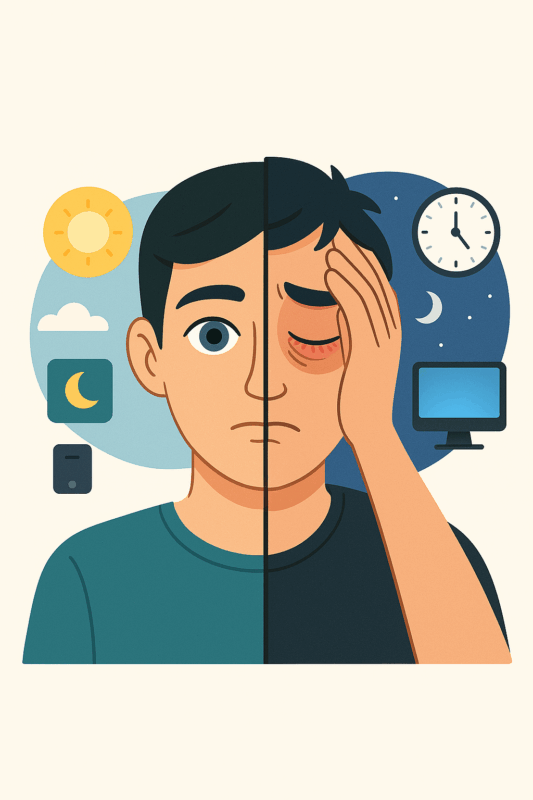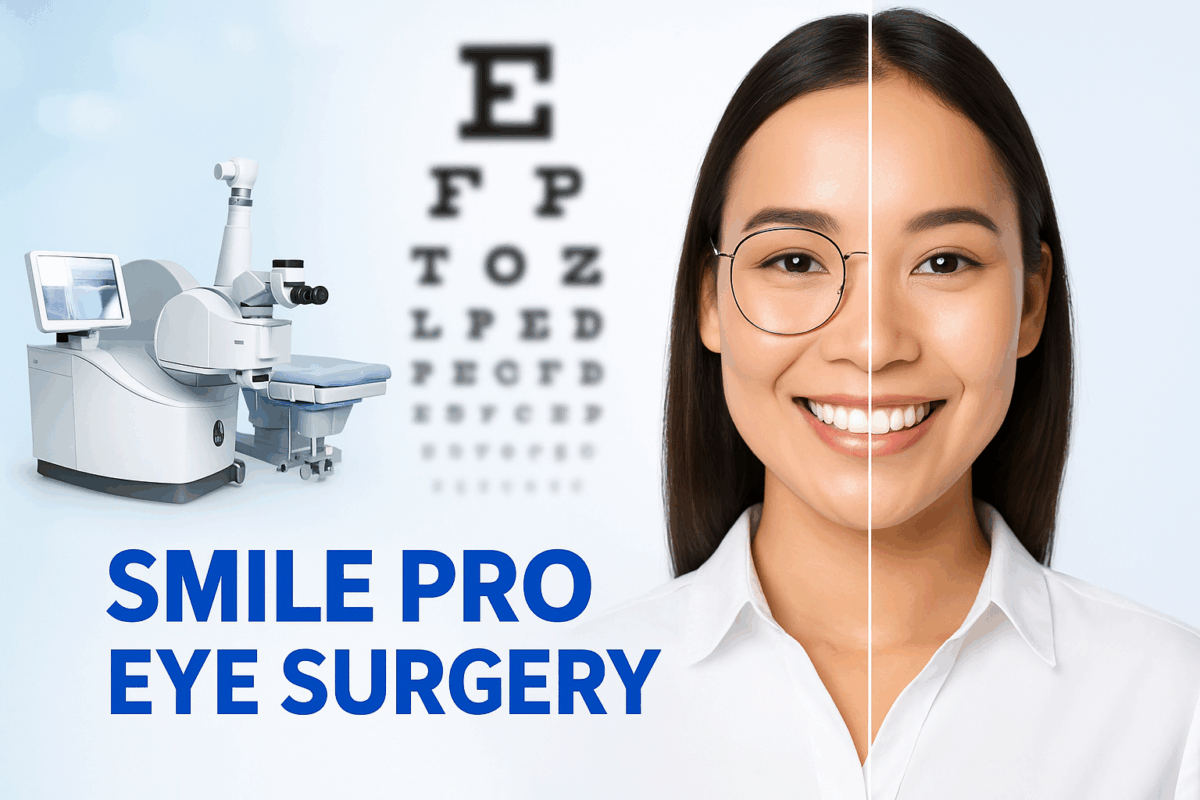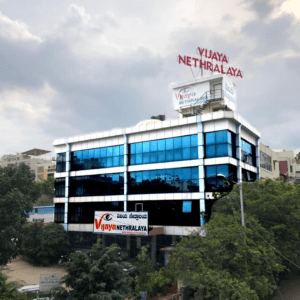Introduction: A Revolutionary Vision Solution
If you’re tired of wearing glasses or contact lenses and are not a candidate for LASIK, EvoVision ICL might be your perfect solution. This advanced technology is transforming lives by offering clear, sharp vision without altering the shape of your cornea. EvoVision ICL (Implantable Collamer Lens) is one of the safest, most effective long-term options for vision correction available today.
Unlike LASIK or PRK, Evo Visian ICL works without altering the shape of the cornea. A surgeon inserts a biocompatible lens inside the eye to correct refractive errors like myopia, hyperopia, and astigmatism.
Let’s explore everything you need to know about EvoVision ICL in detail — from how it works and who qualifies to cost, recovery, and long-term benefits.
What Is EvoVision ICL?
EvoVision ICL stands for Implantable Collamer Lens. It’s a soft, flexible lens made from Collamer, a unique material that is compatible with your body. This lens is placed between your iris and natural lens through a small incision.
The implanted lens is completely invisible to the naked eye and seamlessly integrates with your eye’s natural anatomy to enhance vision clarity. Unlike LASIK, which removes corneal tissue, ICL leaves the cornea untouched.
Why It’s Different from Traditional Options
- No permanent tissue removal
- Reversible if your prescription changes
- UV Protection built into the lens
- There’s no need for a corneal flap or thinning of the cornea, unlike what occurs during LASIK procedures.
Because of these advantages, EvoVision ICL is especially beneficial for people with high refractive errors or thin corneas.

Ideal Candidates for EvoVision ICL
EvoVision ICL isn’t for everyone — but it’s a great choice if you meet the following criteria:
- Age between 21 and 45
- Stable prescription for at least one year
- High myopia (-3.00D to -20.00D)
- Mild to moderate astigmatism (up to 4.00D)
- Thin corneas or dry eyes
- Not eligible for LASIK
Doctors usually do not recommend this procedure for individuals over 45 due to potential presbyopia, which requires reading glasses.
How Does the EvoVision ICL Procedure Work?
The entire process is smooth and minimally invasive. Here’s a step-by-step breakdown:
1. Preoperative Evaluation
- Your surgeon will perform a comprehensive eye exam.
- Corneal thickness, eye pressure, anterior chamber depth, and pupil size are measured.
- A personalized lens power is chosen based on your refractive error.
2. Surgery Day
- The procedure takes only 20–30 minutes.
- Local anesthetic drops are applied.
- A small incision (about 3 mm) is made in the eye.
- The ICL is gently folded and carefully inserted through a tiny incision before being positioned behind the iris.
- Once inserted, the lens naturally unfolds and settles securely behind the iris, where it begins to correct vision immediately.
3. Quick Recovery
- Most patients notice improved vision within 24 hours.
- No stitches are needed.
- You can usually return to work in 2–3 days.
What to Expect After the Procedure
Postoperative Care Tips
- Use medicated eye drops as prescribed.
- Avoid touching or rubbing your eyes.
- Don’t swim or use makeup around the eyes for two weeks.
- Wear UV-protective sunglasses when outdoors.
Your surgeon will schedule multiple follow-ups to monitor healing and ensure the lens is in place.
Advantages of EvoVision ICL Over Other Options
| Feature | EvoVision ICL | LASIK | Glasses/Contacts |
|---|---|---|---|
| Reversible | ✅ | ❌ | ✅ |
| Preserves cornea | ✅ | ❌ (tissue removed) | ✅ |
| Dry eye issues | Rare | Common | Sometimes |
| Night vision clarity | High | Variable | Moderate |
| UV protection | Built-in | None | Limited |
| Maintenance | None | None | Regular cleaning |
| Suitable for high power | ✅ | ❌ | ✅ |
EvoVision ICL for High Myopia and Astigmatism
Many people are denied LASIK due to extreme nearsightedness or corneal thinning. EvoVision ICL shines in these cases.
The ICL can correct:
- Myopia up to -20.00 diopters
- Astigmatism up to 4.00 diopters
- Hyperopia in selected cases (with newer models)
This makes it the only viable long-term option for many high-power users who want freedom from glasses.
How Long Does EvoVision ICL Last?
EvoVision ICL lenses are designed to last a lifetime. Unlike contact lenses, they don’t require replacement. Once implanted, they remain stable and continue to provide excellent visual quality.
However, in rare cases where natural cataracts develop later in life, surgeons may need to remove or replace the lens during cataract surgery.
Is EvoVision ICL Safe?
Yes — the FDA has approved the technology, and surgeons have used it in over 2 million procedures worldwide.
Common Side Effects Include:
- Mild glare or halos initially
- Slight discomfort for 1–2 days
- Temporary blurry vision
These are typically short-lived. Most patients report clear, sharp vision with minimal side effects. Choosing an experienced surgeon reduces risks dramatically.
Cost of EvoVision ICL Surgery
The cost can vary depending on:
- Geographic location
- Surgeon expertise
- Technology used
Estimated Cost
- India: ₹70,000 to ₹120,000 per eye
- USA: $3,000 to $5,000 per eye
- UK: £2,500 to £4,000 per eye
While it may seem expensive upfront, it’s a one-time investment. You won’t spend on glasses, contacts, or solutions year after year.
Recovery Timeline and Results
Immediate Results:
- 90% of patients achieve 20/20 vision within the first week.
- Vision is stable within 1 month.
Long-Term Results:
- Excellent visual clarity for years
- Low retreatment or replacement rate
- No regular maintenance or replacements required

EvoVision ICL vs LASIK: Which Should You Choose?
Here’s a quick checklist:
If you tick most boxes under EvoVision ICL, consult an ophthalmologist for evaluation.
| Condition | EvoVision ICL | LASIK |
|---|---|---|
| High myopia | ✅ | ❌ |
| Thin cornea | ✅ | ❌ |
| Dry eyes | ✅ | ❌ |
| Wants reversible fix | ✅ | ❌ |
| Age under 45 | ✅ | ✅ |
| Astigmatism correction | ✅ | ✅ |
Latest Innovations in ICL Technology
The latest models of EvoVision ICL now come with:
- Toric correction for astigmatism
- Phakic IOLs for hyperopia
- Smaller incision sizes
- Built-in central port eliminating need for pre-op iridotomies
These updates have made ICL more efficient, less invasive, and quicker to recover from.
Conclusion: Clear Vision That Lasts a Lifetime
EvoVision ICL is more than just a vision correction procedure — it’s a lifestyle upgrade. If you’re tired of the hassle of glasses or contacts and want a long-term solution, you can choose this advanced technology to gain comfort, clarity, and confidence. It’s safe, reversible, and proven to work for people who may not qualify for LASIK.
You only get one set of eyes. Trust the best technology, and more importantly, the right surgeon.
Author Details:
Dr. Sushruth Appajigowda holds a prominent position as a cornea, cataract, glaucoma, and LASIK surgeon in Bangalore. He serves as the chief cataract and refractive surgeon at Vijaya Nethralaya Eye Hospital, Nagarbhavi, Bangalore. Renowned as one of the finest LASIK surgeons nationwide, he brings with him over 12+ years of experience across multiple LASIK platforms, including ZEISS, ALCON, SCHWIND, AMO, and Bausch and Lomb. Having successfully conducted over 5000 LASIK procedures, Dr. Sushruth holds the title of a Certified Refractive Surgeon and a Fellow of the All India Collegium of Ophthalmology. Furthermore, he stands as a distinguished speaker at various national and international forums, using his expertise to guide you in selecting the most suitable procedure based on your health requirements.

http://vijayanethralaya.com/link-in-bio/
Questions to Ask Your Surgeon Before ICL Surgery
- How many ICL procedures have you performed?
- Do I need toric correction for astigmatism?
- What is my corneal thickness and anterior chamber depth?
- What are the risks specific to my eye condition?
- What’s the follow-up protocol post-surgery?
Getting answers to these questions builds trust and prepares you for realistic outcomes.



